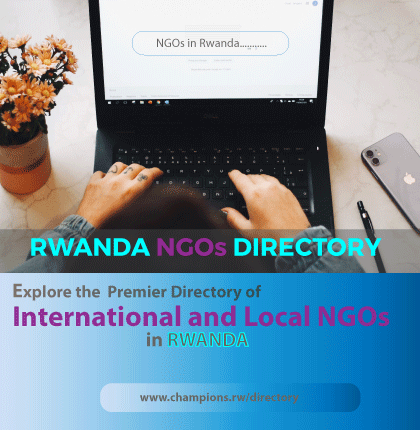Rwanda Boosts School Feeding Budget as One-Third of Population Enrolled in Schools
Rwanda has increased funding for its nationwide school feeding program, reinforcing a policy that provides meals to (…)

Rwanda loses more than Rwf 210 billion annually to natural disasters, and officials warn the costs could rise if preventive measures are not strengthened. The Ministry in Charge of Emergency Management (MINEMA) released a report Thursday, October 23, detailing the economic impact of disasters and outlining strategies to reduce risks before they occur.
The report, presented during a national dialogue on disaster management coinciding with the International Day for Disaster Risk Reduction, shows government spending on disasters has steadily increased since 2014, reaching 1–2 percent of the country’s Gross Domestic Product (GDP) and 4.3 percent of total public expenditures.
Domestic resources cover 78 percent of disaster response costs, while international partners contribute 22 percent, mainly through emergency relief aid.
MINEMA has introduced five key strategies to build resilience: preparing financial mechanisms in advance, aligning disaster financing with national policies, strengthening public-private cooperation, enhancing awareness and capacity building, and supporting Rwanda’s Vision 2035 goal of a resilient economy.
Minister of Emergency Management Maj. Gen. (Rtd) Albert Murasira said the government is shifting focus from reactive measures to proactive resilience building. “We plan to strengthen resilience so the impact of disasters is reduced,” Murasira said. “Often, we respond after people are already affected. Building resilience now will lessen future crises.”
He emphasized that citizens also have a role to play. “Government policies alone are not enough,” he said. “Individuals must make informed decisions, such as avoiding construction in high-risk areas. Protecting the environment is also crucial, as it reduces disaster risks.”
Justin Kayira, Head of Disaster Management at World Vision Rwanda, said the measures will empower communities to better protect themselves. “Strengthening local capacity and improving livelihoods allows people to reduce vulnerability and recover faster from disasters,” he said.
The report warns that without stronger preventive actions, disasters could cost Rwanda up to $345 million in a single year within the next 50 years. Officials say building resilience is essential to protecting lives, livelihoods, and the country’s economic stability.
Rwanda has increased funding for its nationwide school feeding program, reinforcing a policy that provides meals to (…)
Rwanda has launched a $300 million initiative to expand Volcanoes National Park and protect surrounding communities (…)
Atlantic Microfinance for Africa (AMIFA), a subsidiary of Morocco’s Groupe Banque Centrale Populaire (Groupe BCP) (…)
Foreign investment in Rwanda has surged over the past five years, nearly tripling from $390.3 million in 2020 to (…)

